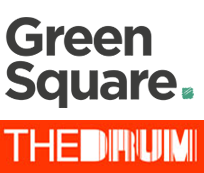9th October 2014
Since then, of course, said acronym has come into widespread daily use as a symbol of the apparent shift in global economic power away from the developed G7 economies towards the developing world, specifically Brazil, Russia, India and China. Predictions about the future power of the BRICs vary wildly, but at some point – nobody can agree quite when – it seems reasonable to assume that, given these four countries comprise 25 per cent of the world’s land surface and 40 per cent of its population, that they will eclipse the US, Japan and the EU.
But Brazil is a relatively stable Western-style democracy, rich in human and natural resources, with European colonial roots and a Romance language (Portuguese). Although it does have its fair share of problems, it does have enormous potential.
So it’s perhaps no surprise to learn that that most canny of marcomms investors, Sir Martin Sorrell, has been investing quite heavily in the South American giant recently (Brazil is also WPP’s eighth-biggest market globally with sales of more than $650m a year) – in fact, WPP has bought no fewer than three Brazilian agencies in as many weeks.
All of them are in growth areas, in keeping with WPP’s oft-quoted business strategy. The most recent was in the area that will be the fast-growing and most hotly-contested of the next few years – data.
Kantar Health, WPP’s wholly-owned global healthcare consulting firm, acquired Focus Assistência Médica S/S Ltda. and Classe Assistência Médica S/S Ltda. (we’ll call it “Evidências” for brevity), a leading healthcare research company based in the South-Eastern cities of Campinas and São Paulo.
As ever with WPP, the details of the deal have not been disclosed, but Evidências’ unaudited revenues for the year ended 31 December 2013 were approximately 5.8 million Brazilian Real (about £1.5m) with gross assets of approximately 0.9 million Real (£223,000) at the same date. So not a huge deal in all likelihood, but an important one.
Founded in 1998, the company employs 22 people and provides consultancy and research services in pharmaco-economic studies and analysis, local dossier submission packages, professional writing, market access and training. It works with all segments of the Brazilian healthcare market, including health insurers, government bodies, hospitals and providers, and pharmaceutical and medical device manufacturers.
WPP says in a statement: “The acquisition expands Kantar Health’s presence in an important fast-growth market and provides the company with new capabilities in cost effectiveness and budget impact economic models. It also continues WPP’s strategy of investing in fast growing markets and its commitment to developing its strategic networks throughout the dynamic Brazilian market.”
What’s also interesting is how WPP has been slowly reinventing Kantar – once the “market research” unit of WPP, it is now moving towards a consulting, insight and data analytics model – or, as the group calls it, “[our] data investment management division”.
With the data and pharma boxes ticked, we move on to digital and mobile. JWT, one of WPP’s biggest global ad networks, bought a majority stake of Cairos Usabilidade Eireli (known as “Try”), a user experience agency in Brazil that designs and develops custom web, mobile, desktop and touch-enabled applications.
Try’s unaudited revenues for the year ended 31 December 2013 were approximately 2.5 million Real (£620,000). Again, not a huge acquisition, but Try does have a very good client book, including a number of successful Brazilian and international businesses such as Itaú Bank, Porto Seguro, Electrolux, SKY, Serasa-Experian, Havaianas, Prontmed, and Kate Spade. Founded in 2003, the company employs 22 people and is based in São Paulo. Try provides consultancy to their clients in user experience, interaction design and prototyping – so again, it is more than “just” an agency.
Sir Martin’s third September Brazilian acquisition was another JWT deal, this time in another important market – search. Internet penetration in Brazil lags behind many developing economies – it’s just 45.6 per cent – so there is plenty of growth to be had in search, and search engine marketing lags behind other territories.
So the announcement of the acquisition of a majority stake of Mídia 123 Serviços de Publicidade Via Internet Ltda. (better known as “Blinks”), a leading search engine marketing agency, was another indication of the holding group’s seriousness about becoming a major force in Brazil.
Blinks’ unaudited revenues for the year ended 31 December 2013 were 11.2 million Real (£2.8m) with gross assets of approximately 3.3 million Real (£819,000) at the same date, making it the biggest of the three acquisitions Clients include local companies Bom Negócio, CVC, Netfarma, Giuliana, and Sem Parar. As well as more familiar names like office supply giant Staples. Founded in 2009, the company employs 81 people and is based in São Paulo.
Blinks specialises in sponsored-links campaigns and other performance-based advertising. As internet penetration in Brazil grows, brands and companies will have to focus on effective search-engine marketing (SEM) to achieve the best search engine rankings.
As a result, clients are increasingly turning to established SEM solutions, such as those provided by Blinks, to play a strategic role in maximising their internet presence and the all-important return on investment; and, by coming to the party relatively early, WPP has stolen a lead on its rivals.
